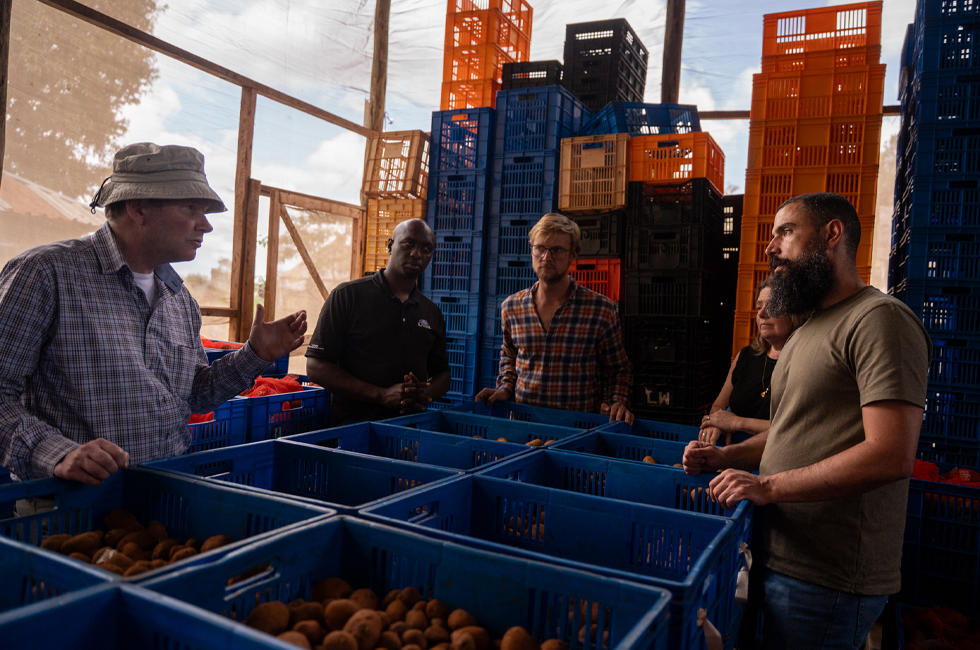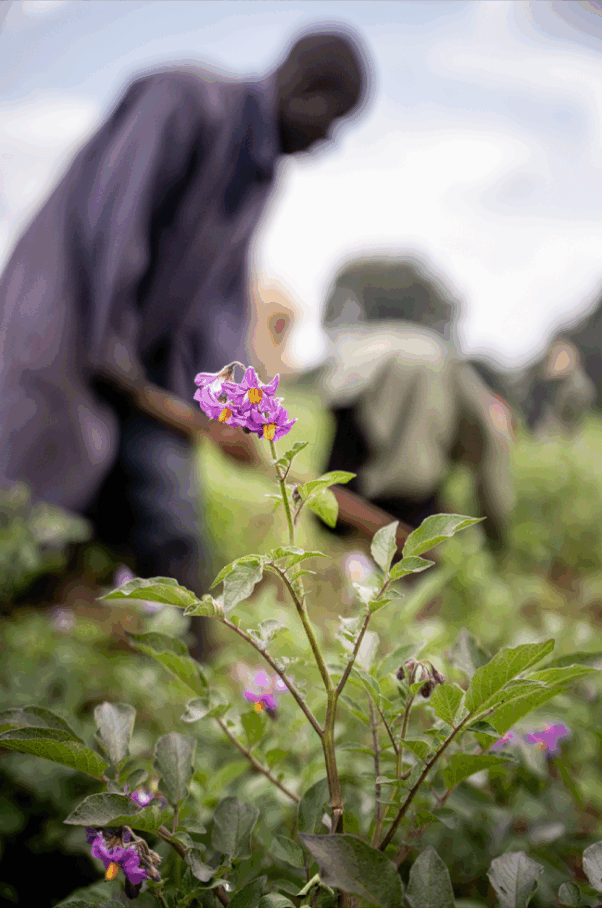Potatoes possess significant potential in eastern Africa. However, yields are plummeting. A new hybrid breeding initiative spearheaded by the International Potato Center (CIP) and the Dutch seed company HZPC seeks to reverse this decline and revolutionize the breeding and cultivation of potatoes throughout the continent. This project, named One-to-One, represents a crucial

advancement towards establishing more accessible and resilient potato seed systems.
As the second most vital staple crop in Kenya, potatoes provide employment for approximately two million individuals and contribute over half a billion U.S. dollars to the economy each year. Nevertheless, the sector is facing a crisis. Yields have decreased by two-thirds over the last six years, dropping from 21 to merely seven tons per hectare. One of the primary reasons for this decline? The persistent shortage of quality seed.
As the second most vital staple crop in Kenya, potatoes provide employment for approximately two million individuals and contribute over half a billion U.S. dollars to the economy each year. Nevertheless, the sector is facing a crisis. Yields have decreased by two-thirds over the last six years, dropping from 21 to merely seven tons per hectare. One of the primary reasons for this decline? The persistent shortage of quality seed.
“For farmers, this situation is not merely a crisis but an opportunity to rethink potato breeding,” state Thiago Mendes from CIP and Harmen den Braber from HZPC. Together, they are initiating Africa’s largest hybrid potato breeding project in Kenya. The objective is to develop inbred lines from CIP’s extensive genetic resources and cross them with HZPC’s commercial lines to produce robust, climate-resilient hybrids suited to African

environments. “We aim for potatoes to reach more farmers across various regions,” remarks den Braber. “By expediting breeding and addressing disease and climate challenges, we can make high-quality seed more affordable and widely accessible.”
Access to clean, certified seed is arguably the most significant obstacle in potato farming. In Kenya, less than five percent of farmers utilize certified seed. The overwhelming majority depend on recycled seed — potatoes saved from earlier harvests and replanted over several seasons. This method, often repeated for five to ten generations, results in severe degeneration. Pests and diseases such as nematodes, late blight, and bacterial wilt accumulate, leading to yield losses ranging from 30 to 60 percent.
Certified seed, although cleaner, is priced three to five times higher than seed saved by farmers and is often difficult to locate. Transportation costs are high, storage requires significant space, and formal seed systems rarely extend to remote regions. “The economics simply do not work for most smallholders,” Mendes states.
This is where hybrid breeding and true potato seed (TPS) become relevant. Unlike traditional potatoes, which are propagated through tubers, hybrids can be cultivated from botanical seeds — lightweight, disease-resistant, and cost-effective to transport. TPS, comparable in size to tomato seeds, has the potential to drastically reduce distribution expenses and provide clean planting materials to areas that were previously inaccessible. “In East Africa, where seed systems struggle to meet demand, TPS would be revolutionary,” den Braber remarks.
However, hybrid breeding presents its own set of challenges. For many years, potato breeding has concentrated on cloning tubers — a straightforward method where each generation is genetically uniform. Hybrid breeding, on the other hand, is a more complex process. It requires the selection and stabilization of parent lines, management of intricate genetics, and the production of seeds that surpass the performance of both parent plants. While technically achievable, it necessitates investment in infrastructure, time, and specialized knowledge.
This is where the partnership between CIP and HZPC is particularly noteworthy. CIP contributes extensive scientific knowledge and the largest collection of potato diversity globally, including traits for heat and pest resistance. HZPC, on the other hand, is among Europe’s leading commercial potato breeders, with a keen emphasis on market demands and processing characteristics. “Access to these two diverse gene pools,” Mendes explains, “enhances the likelihood of achieving hybrid vigor when the offspring exceed the performance of their parents.”
Equally significant is the combination of public and private networks. HZPC stands out as the first major private seed company to make substantial investments in large-scale potato breeding for Africa. CIP contributes decades of collaboration with governments, research institutions, and farmers throughout the region.
Up to this point, private enterprises have been reluctant to invest in potato breeding initiatives for eastern Africa. The responsibility for development has predominantly fallen on underfunded public institutions. “That needs to change,” Mendes asserts. “We aim for this to have a significant impact at scale. Having HZPC involved guarantees a viable business case from the outset.”
Although results will not be immediate, HZPC remains optimistic about the long-term benefits. “Naturally, we hope to observe progress within five years,” den Braber states. “However, even if it takes longer, the returns will greatly exceed the initial investment.”
